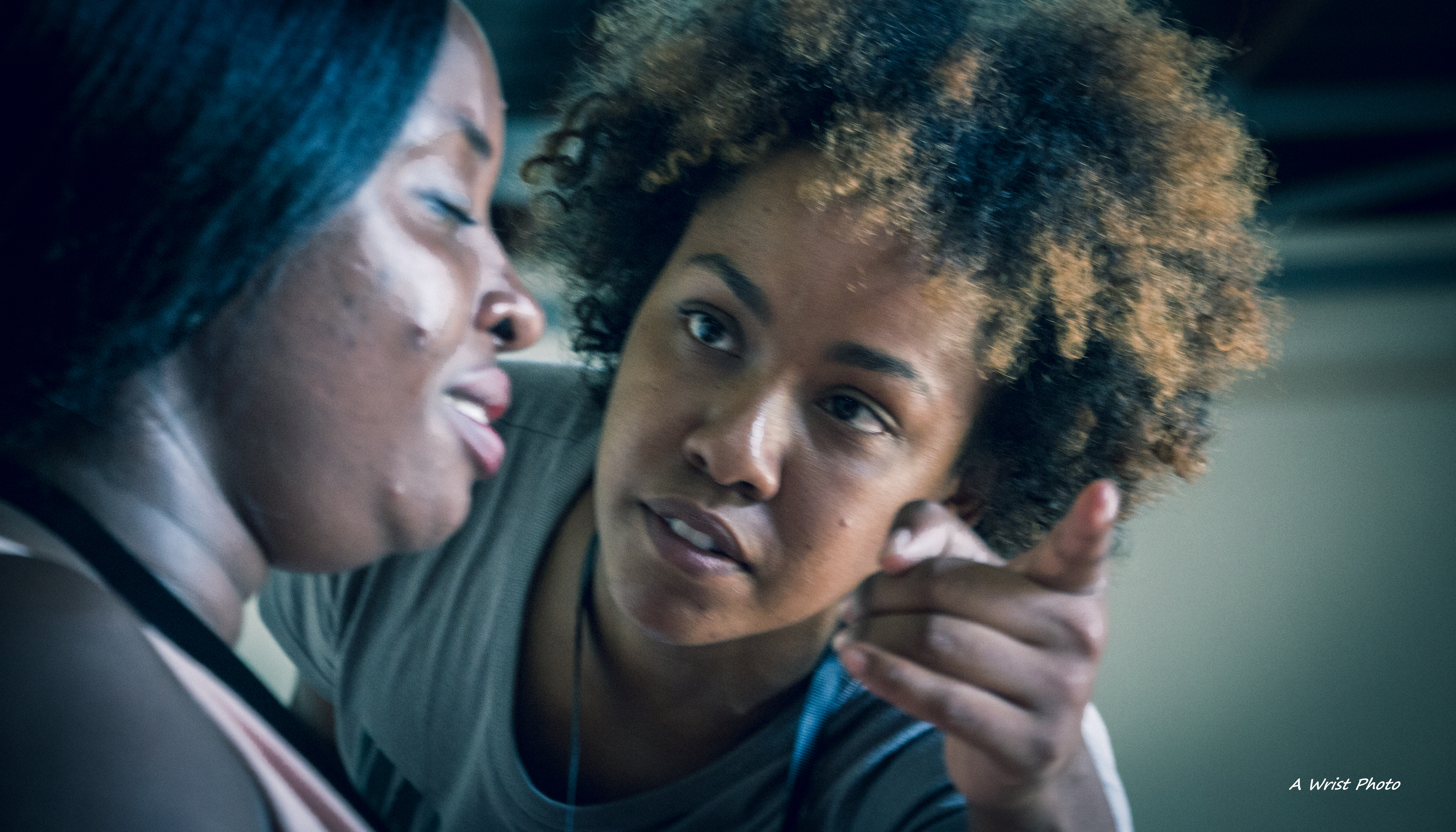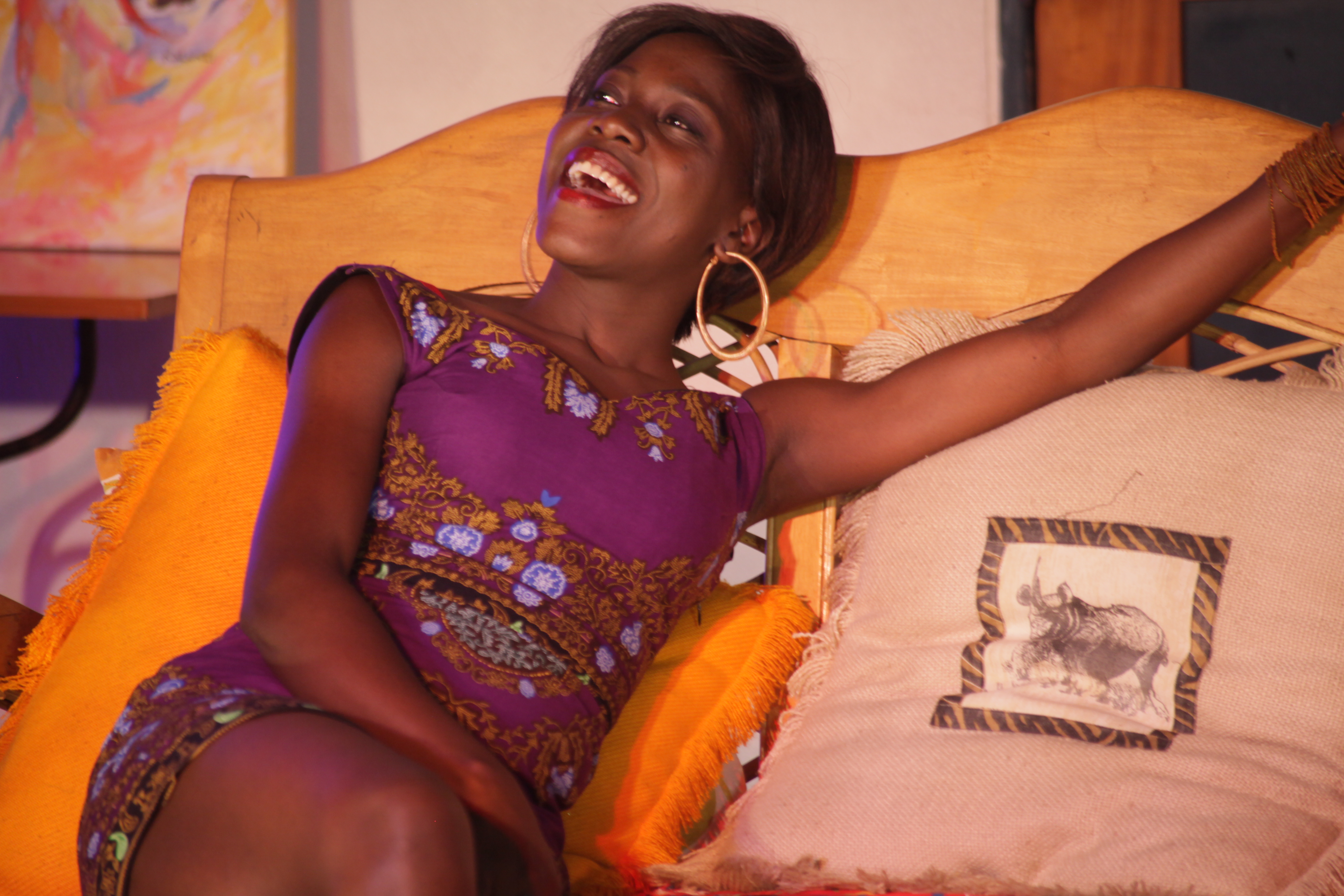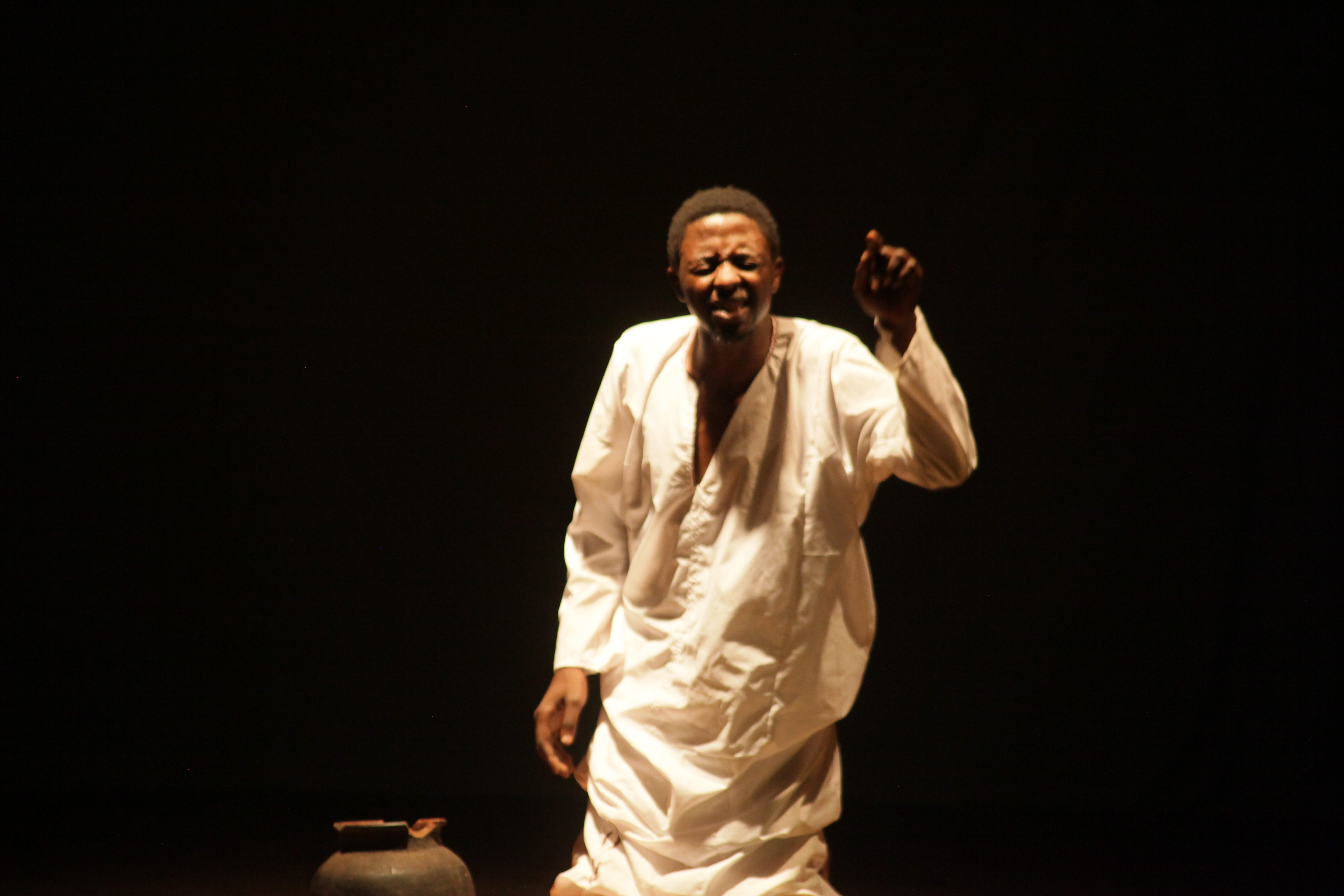AFRICAN THEATRE SHINES AT KAMPALA INTERNATIONAL THEATRE FESTIVAL
The curtain fell on the third annual Kampala International Theatre Festival last weekend (27 November), with the stages of the Ndere Cultural Centre having hosted a fascinating array of productions drawn from across the continent.

Uganda’s chequered history and uncertain future was explored through poetry and performance in Peter Kagayi’s The Audience Must Say Amen, while there was more political commentary on homosexuality and femininity in Achiro Patricia Olwoch’s powerful play The Surrogate.
While the focus was firmly on Ugandan theatre, the line-up also included productions from the African diaspora and further afield. A highlight was the engaging American/Ethiopian production Mourning Sun, where Antu Yacob tackled the thorny issue of child brides, while Lebanon’s Minwal Theatre Company added a Middle Eastern musing on life and death in Barzakh.
With the applause still ringing in her ears, we tracked down producer and KITF co-curator Asiimwe Deborah Kawe to ask her…
How did the Kampala International Theatre Festival (KITF) come about?
The Festival was inaugurated in Kampala in November 2014. It was born out of close to 13 years of investment by Sundance Institute East Africa (SIEA) in exposure and exchange activities with artists from Burundi, Ethiopia, Kenya, Rwanda, Tanzania and Uganda. Sundance Institute does not produce or present work, and yet we had identified a need for space where artists could showcase the work they had developed. There was no such space in any of the Eastern African countries. Together with Bayimba cultural foundation, we joined hands to create KITF.
“We had identified a need for space where artists could showcase the work they had developed. There was no such space in any of the Eastern African countries”
What is the aim of the Festival?
To contribute to Uganda’s theatre industry – and that of the East African region – by creating a platform to support and facilitate presentations of theatre productions that we feel are relevant to our Kampala audiences, and audiences from elsewhere.

How is it different to other arts festivals in Africa?
One of the components of the festival is to create space for new work. We give new plays or theatre projects still in development [the] space to make their work better, and such work is given a platform to be presented as ‘work in progress’.
We also offer training workshops in different areas of performance. This year, we had a workshop on Storytelling and Solo Performance, as well as in Acting. There are many talented performers in Uganda who have not gotten any formal training in performance. We are therefore creating that space within the festival space for talented performers to acquire skills for their craft.
“There are many talented performers in Uganda who have not gotten any formal training in performance. We are therefore creating that space within the festival space for talented performers to acquire skills for their craft”
Did the productions at this year’s festival speak to any specific issues in Africa?
The predominant themes at this year’s festival included repression and rule of law in fragile democracies; movement and migration, especially as it affects people of colour; Human Rights violations; questions related to HIV and Aids; early marriages and its effects; life after death or the absence of it; LGBTQ, sexuality and coming of age stories.

It’s about exposing both African and international theatre productions to Ugandan audiences… why is this particularly important at this point in history?
The internet and some forms of technology have shrunk our world. The more we shrink, the more we become separate from anyone different from us. We become inward-looking and are afraid of the other. We become afraid of anyone who doesn’t look like us, or talk like us or share similar beliefs as us.
The beauty and discomfort of theatre is that it allows us to experience and see things in a new way, together. Theatre makes change possible, and helps change perceptions. In that space called ‘theatre’, people see together, hear together, witness or actively participate together. With all that Uganda has witnessed socio-politically, and our fragile democracy, not only in this country but also in the region, we at KITF feel that theatre-makers have something to say and have a compelling way to say it.
“The beauty and discomfort of theatre is that it allows us to experience and see things in a new way, together. Theatre makes change possible, and helps change perceptions”
What was the response like from this year’s Festival attendees?
In terms of the quality of the work, the response was quite overwhelming. Different people told us that the programme we put together was very compelling and relevant to most of today’s global questions of our human existence. Since the Festival is still quite new, our audiences are still small. However, since its inception we have witnessed a steady progress in terms of the audience numbers. This makes us believe that we are doing something valuable.











